There is freedom to be found in dreaming despite the chaos going on in the world, and in Adeolu Osibodu's mind-bending photographic work, he invites the viewer to join him on a journey through space and time as he navigates reality, traversing sky, land and sea. Born and raised in Lagos, Nigeria, Osibodu spent his adolescent years evolving into a phase of creating images. Inspired by music and cinema, he aims to capture the motion in stillness, and to celebrate his cultural upbringing through his imagery.

As a child of ministers, Osibodu moved to Redemption Camp, a Pentecostal Evangelical mega church in Mowe, in the state of Ogun, in Nigeria, around the age of 10. It was here that he developed a sense of spirituality outside of religion and expanded his imagination while roaming the campground's many fields and open spaces.


"Being in Lagos, we're used to the hectic lifestyle of traffic and the population density, but back here, it's very spaced out — you have a lot of time to think for yourself; there are less distractions — so having that experience inspired part of my photography," Osibodu says. "When I started creating images, I saw that I was being drawn to surrealism and a form of distortion of reality. [...] Everything is slipping as it's coming to you — it's just slipping out of your hands — so that whole sense of time is what I try to explore with my work."


Feeling an urge to express himself without words as a teenager, Osibodu began to make images of the natural world around him with his smartphone. "I didn't have a lot of money then, so I couldn't buy too many expensive things; I had to work with the things around me." Osibodu says he didn't have an explicit narrative he was trying to convey, he just wanted to channel his emotions into a visual diary — his anger over something that happened at school or experiencing heartbreak.
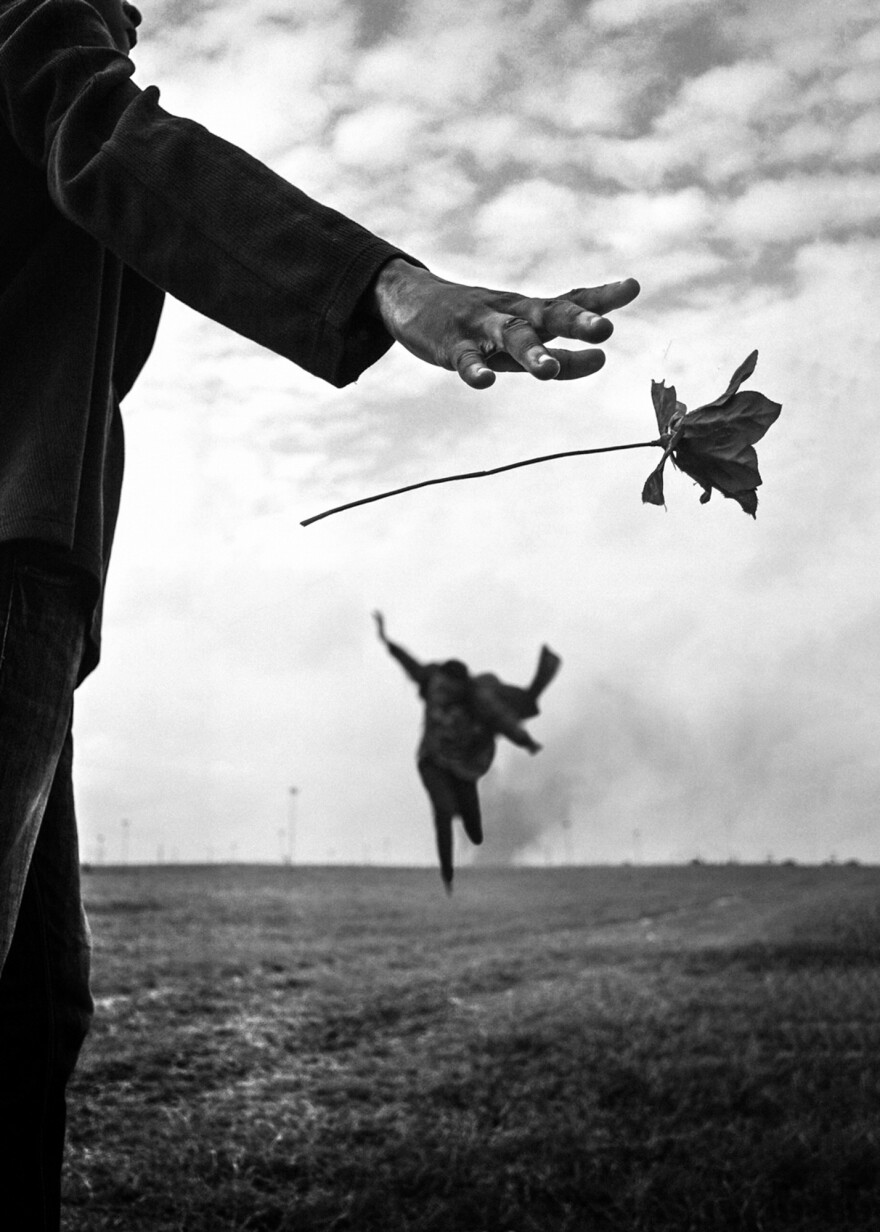

At first, photography was more of a hobby — a way to respond to the world around him — but Osibodu's recovery from a skateboarding accident in 2016 made his passion clear.
"I broke my femur in two and I went unconscious during the accident. I couldn't work for about eight months," Osibodu recalls. "That whole phase in my life gave me a sort of redirection and it gave me this strong sense of gratitude for time, for life and for being able to experience this craft. Before the accident, I didn't have a camera. But, spending more time with myself, getting to think of ideas and getting to see my life very objectively — once I recovered, I knew what I wanted to do with my life at that point. Within two months of recovering, I got my camera and it has just been nonstop from there. Even though it was a painful phase in my life, I think it was very necessary and I'm so grateful for it."

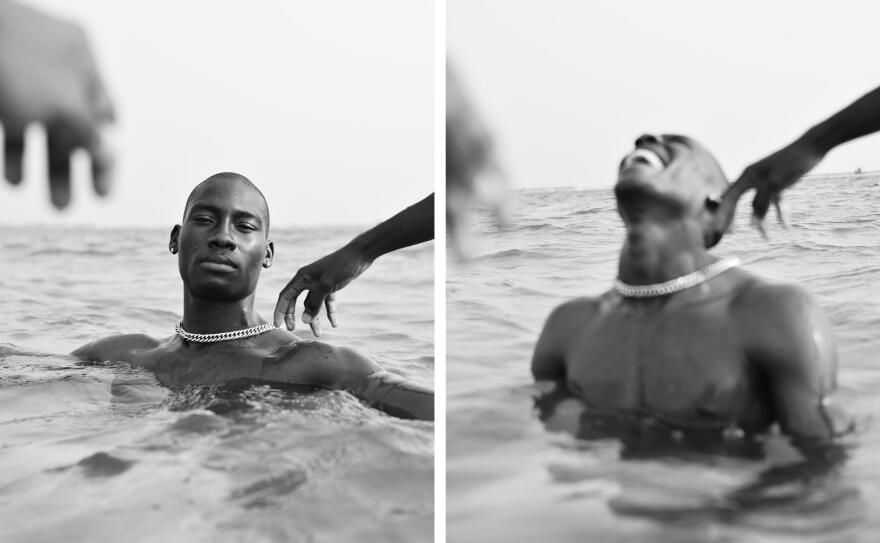
In the process, Osibodu got in touch with his inner child, and he's continued to expand his approach to photography through the use of new, illusory Photoshop techniques. His dreamlike environmental portraits, which depict himself, his family and his close friends as models and people and objects soaring or evaporating into thin air, seem almost three-dimensional. "I used to be a very big movie person," he says. "I used to watch a lot of films — not necessarily sci-fi, but a lot of period dramas, a lot of old movies, and a lot of movies that make you feel like you're time-traveling."
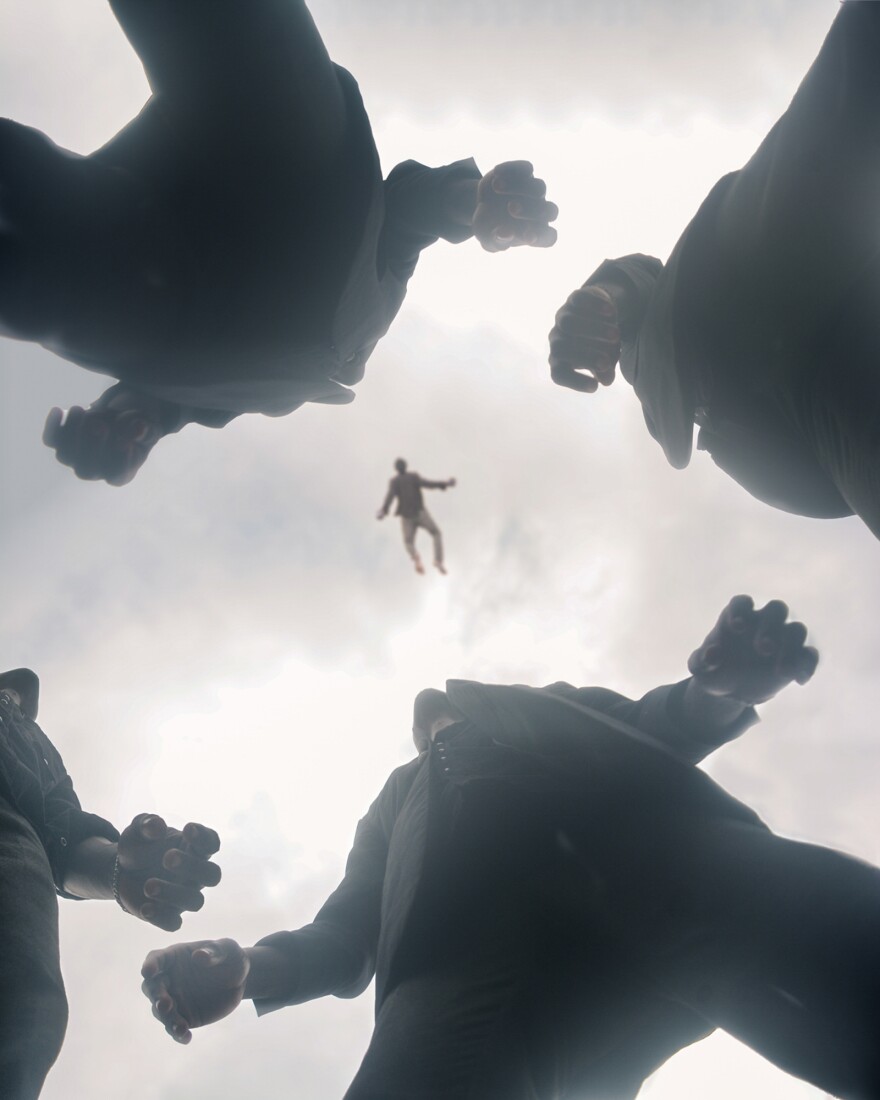

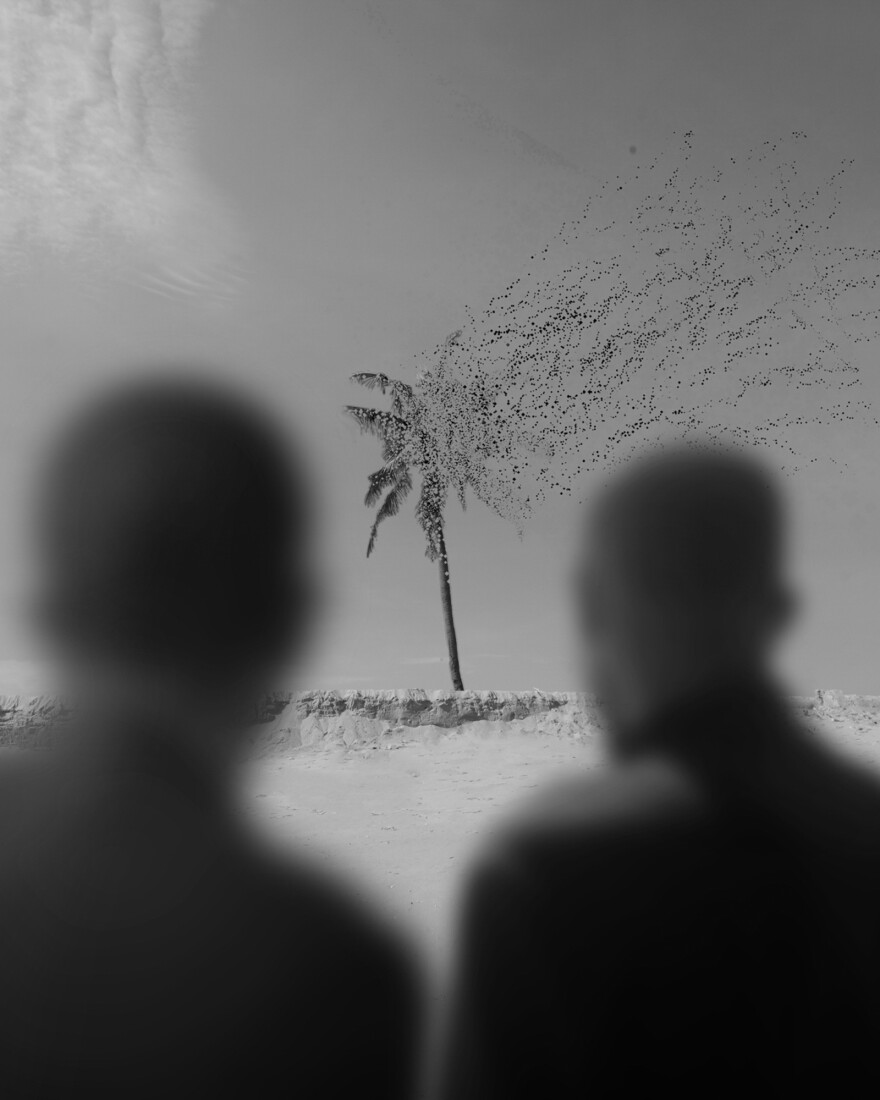
Osibodu also purposefully employs black and white through much of his imagery. "I got to discover for myself that creating images without colors could help you or could help the viewer see a stronger form of the picture, or the naked form of the picture, stripping it of all the distractions." Bodies of water are also a huge component of his work, which often illustrates people wading through the sea. He feels peace and serenity at the beach, and aims to visualize a sense of calmness and cleansing, amplified by his use of grayscale.
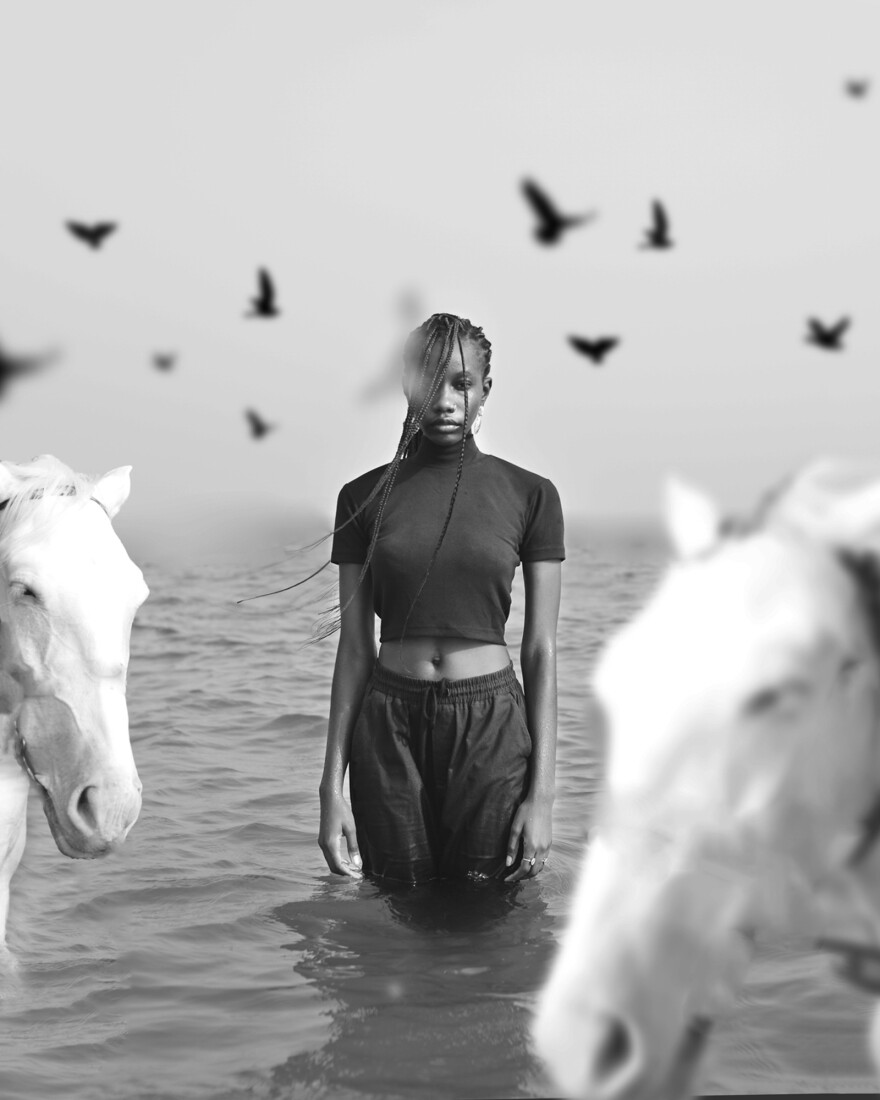

Osibodu's cultural identity also plays a role in his work, with the majority of the people who appear in front of his lens being African. He appreciates the feedback he receives about representing Black people in a contemporary, yet futuristic, form. "Africans are in my photographs because I've always been in Africa. I have always been inspired by people who are around me. So, it's not even intentional; it's just things happening naturally, as they should," he says. "I get to tell stories that reflect their truth."
What's next? On the heels of a recent show in Berlin and being chosen as a 2022 PhotoVogue Festival Grantee, Osibodu says he's simply going to keep creating. His advice for emerging artists: "Everything can happen at once, so you just have to start where you are with what you have. Just start with you."
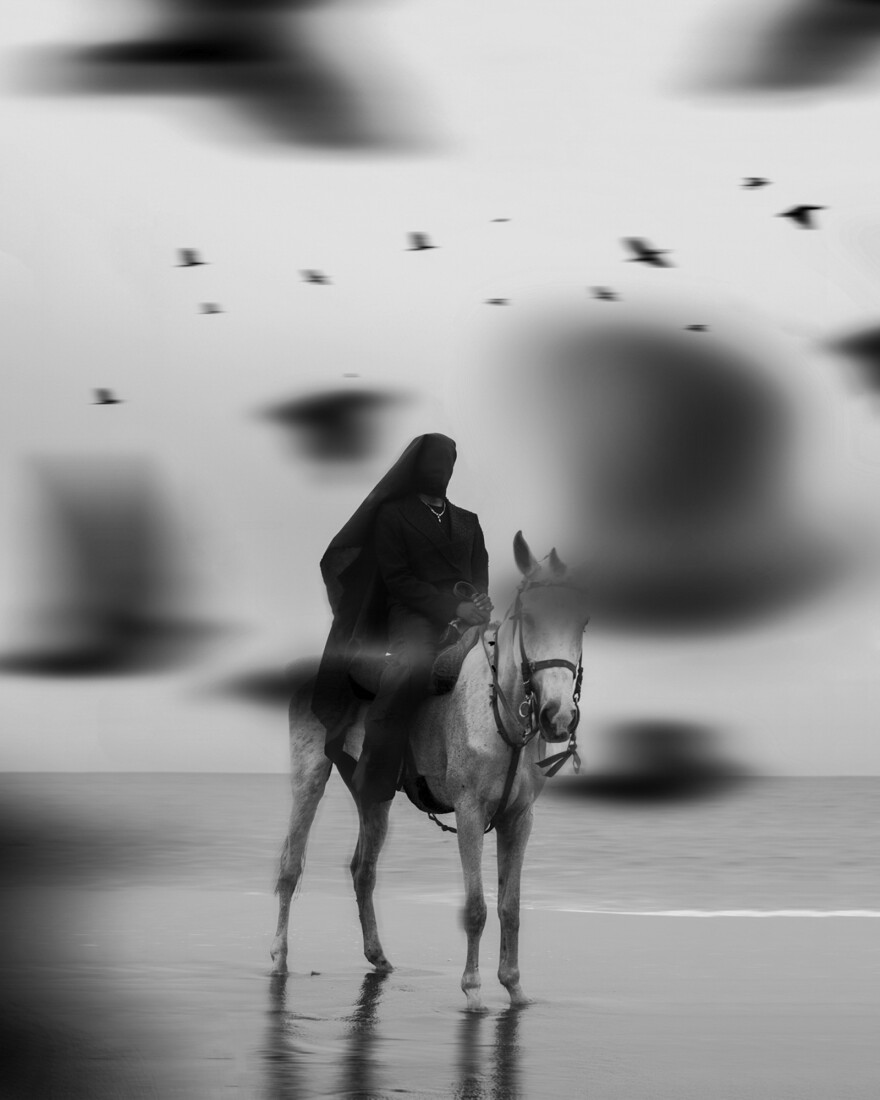
Adeolu Osibodu is a freelance photographer from Lagos, Nigeria and a 2022 PhotoVogue Festival Grantee. Follow him on Instagram @adeoluosibodu.
Copyright 2023 NPR. To see more, visit https://www.npr.org.




